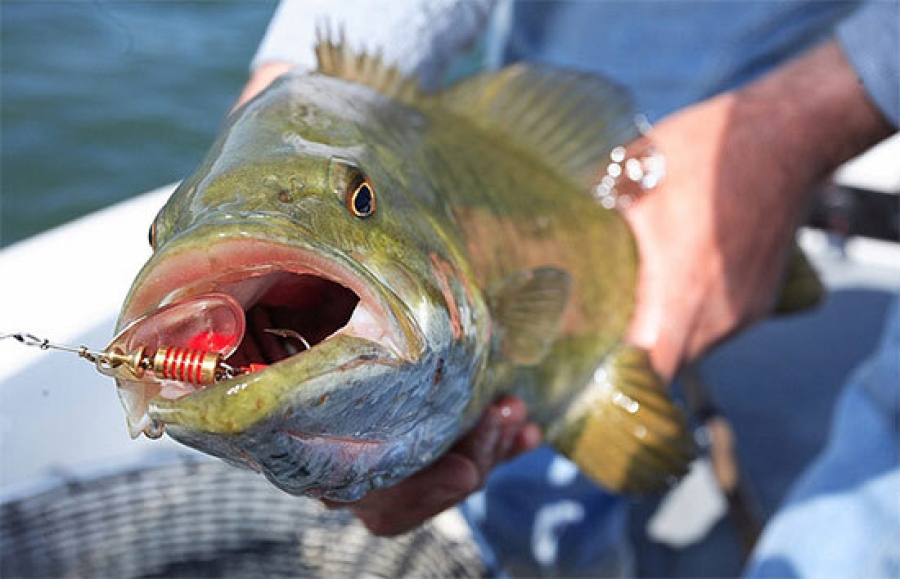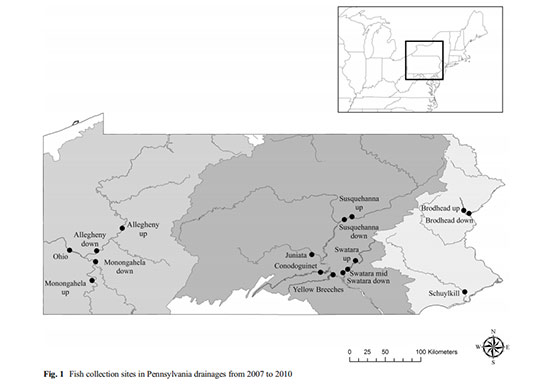Intersex fish found in three Pennsylvania river basins
Research indicates hormone-disrupting chemicals are more widespread in the region than once thought.

Scientists have found intersex fish in three Pennsylvania river basins, indicating hormone-disrupting chemicals are more widespread in the Chesapeake Bay watershed than once thought.

Image courtesy RTD Photography/Flickr
Intersex conditions occur when pesticides, pharmaceuticals or other chemicals disrupt the hormonal systems of an animal, leading to the presence of both male and female characteristics. The presence of intersex conditions in fish, frogs and other species is linked to land use, as the chemicals that lead to these conditions often enter rivers and streams through agricultural runoff or wastewater.
Previous samplings of fish in the region have found intersex conditions in the Potomac, Shenandoah and Susquehanna rivers, as well as lakes and ponds on the Delmarva Peninsula. On samplings conducted at 16 sites between 2007 and 2010, researchers with the U.S. Geological Survey (USGS) found intersex fish in the Susquehanna, Delaware and Ohio river basins.

According to the USGS, freshwater fish called white suckers from sample sites in the Delaware and Susquehanna river basins had a yolk precursor in their blood. Male smallmouth bass from all sample sites had immature eggs in their testes. The prevalence of intersex fish was highest in the Susquehanna river basin, which researchers attribute to the higher rate of farms—and related herbicides, pesticides and hormone-containing manure—in the area. While scientists found no relationship between the number of wastewater treatment plants in an area and the prevalence of immature eggs in fish, the severity of intersex conditions did rise at sites downstream from wastewater discharge points.
“The sources of estrogenic chemicals are most likely complex mixtures from both agricultural sources, such as animal wastes, pesticides and herbicides, and human sources from wastewater treatment plant effluent and other sewer discharges,” said fish biologist Vicki Blazer in a media release.

Comments
The LA Times reports the state Department of Environmental Protection has begun sampling waterways in response to a recent study by the U.S. Geologic Survey which found intersex fish in three Pennsylvania river basins. Male fish carrying eggs were found in the Delaware, Susquehanna and Ohio River systems. The USGS said the findings show that exposure to chemicals that disrupt endocrine or hormone systems such as estrogen may be more widespread than researchers previously thought. More from the LA Times:
Thank you!
Your comment has been received. Before it can be published, the comment will be reviewed by our team to ensure it adheres with our rules of engagement.
Back to recent stories